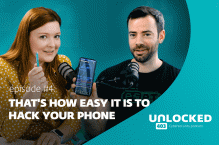Can you imagine a whole family gathering around to look at one computer? Maybe, if there was something really special on the screen. But these days, it's more likely that each member of the family will be looking at a different computer or other digital device. So here's an interesting question, the answer to which may surprise you: On a typical evening or weekend at home, how many computing devices is your household using?
In my house the answer is 10, and that's just my wife and I. Before you decide we're an extreme example, make sure your household computer count includes all of the laptops, tablets, iPods, smartphones and the like. Then think about the TV and DVD player, one or both of which may be connected to the home network. The fact is, many homes today are multi-device households, with numerous PCs, Macs, tablets and smartphones.
While these devices add productivity and fun to our busy lives, they can also become a big headache if not properly protected. What do they need protection against? A whole host of bad people out there who would like to steal your information or your money, or both. Some would also like to steal your family's digital devices as well.
The tool most widely used by these cyber criminals is malicious code--viruses, worms, Trojans--delivered via the Internet. However, this malware can also be spread via USB thumb drives, CDs and DVDs. The most effective way to defend your household's digital devices against malware is to scan incoming files of all kinds with a good antivirus program. Many of these "AV" programs come with added features, like web content filtering, anti-phishing, and even theft protection.
Unfortunately, not all digital devices come with a good AV program installed, and pre-installed AV licenses often expire after a trial period (most AV programs are paid for through an annual license in order to keep them upgraded). As you look at putting in place a plan to protect all of your household's devices, licensing the appropriate security software for each one, you might want to check for a package deal that takes care of multiple devices (preferably for a price that works out less than buying licenses separately).
One example of this kind of licensing is the ESET Mulit-Device Security which covers a combination of computers, Mac or Windows, plus Android devices (you can get packs for 5+5, that's 5 computers and 5 Android devices, or 3+3).
Do you really need security software on each and every device? Well, it only takes one unprotected device to cause major headaches and to put the others at risk. There are a few exceptions, for example, I don't have antivirus on my DVD player, even though it connects to the Internet. However, I do protect any services accessible from that device with strong passwords. I don't have antivirus on my iPhone either, but I do have it password protected in case it gets stolen, and I am careful which websites I visit when I use it (something that is taught in the security awareness training that comes with ESET security products).
Now that summer is here and school is out, there's no better time to take a look at improving your household's cyber defenses, and have that chat about safe computing that all family members need to attend. (If you are planning on taking any of your digital devices on vacation this summer, then check out these tips for protecting your data on the road.)
Note: If you suspect your household's computers are already infected with malware you can get them scanned for free with a variety of complimentary ESET services. There is a free online scanner for Windows machines and a free trial of ESET for Mac OS X. You can also download a free trial version of ESET Mobile Security for Android from Google play.
Have a safer summer enjoying safer technology!





